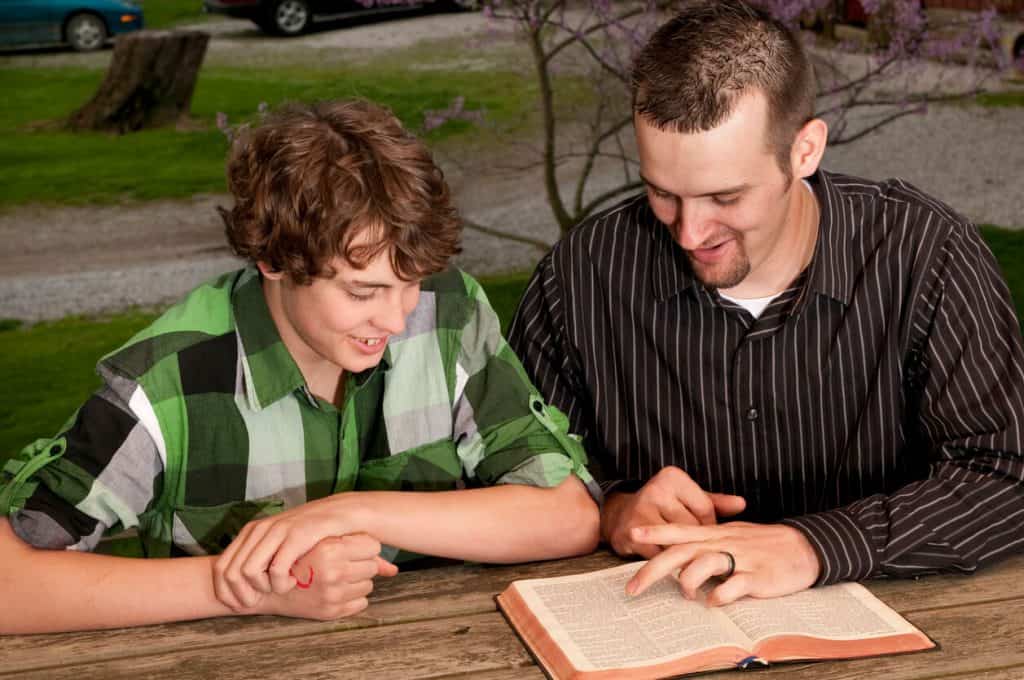Ask any counselor, psychologist, or therapist, and they will all agree that accountability is essential to lasting freedom from pornography.
But what, after all, is accountability? And why is it so important to recovery and healing?
In the minds of many, accountability should harness the power of fear and shame to motivate change. Put another way, the person being held accountable is driven to change their behavior because they are deeply afraid of their faults being revealed and of being condemned for them. In this way of thinking, fear drives recovery—fear of the searing pain of being ultimately rejected for one’s faults. Shame is an intensely painful emotion, perhaps the most painful of all emotions, and as such, it is indeed a powerful motivator.
Nevertheless, to understand accountability as shame-based is a terrible mistake. The truth is the exact opposite.
Accountability is not about fear–it is about learning, perhaps for the first time in your life, not to be afraid. Allow me to explain.
We Were Made for Relationships
Understanding the true nature of accountability begins by realizing that addiction of any kind is rooted in our attachments. That is, addiction finds its source in our experiences of healthy bonding or the lack thereof, especially in our formative years.
Human beings are communal creatures. We were made for relationships, and to thrive, we must have secure attachments to others, especially our parents. In fact, much of our identity—who we believe ourselves to be—is formed by our early experiences of love or the lack of it. From the moment a child is born, she asks unconscious yet very real questions like: Are my needs important? Do I matter to you? Can I trust you? Are you safe?
If we grow up in a loving environment, the answer to these questions will be a resounding, “Yes.” We will receive from those around us physical affection, words of affirmation, food and clothing, and the time and attention needed for healthy emotional development. As a result, we will form a healthy self-identity and strong attachments. We will believe that other people are safe and trustworthy and want what is best for us.
Unfortunately, many of us experience the opposite of loving care in our relationships. Throughout our lives, we may be told in so many ways by others that we do not matter, that our needs are not important, and that other people are not safe or trustworthy. Traumas and wounds cause us to grow calloused, suspicious, and defensive, and we begin to live from a place of fear. Terrified of vulnerability and the emotional pain it brings, we erect barriers and close ourselves off. We find safe and reliable ways—frequently unhealthy, like pornography—of coping with our hunger to be loved.
Accountability and the Path to Healing
Accountability is the cure for wounded attachments, for at its core, it’s about learning to trust and relearn healthy bonding. It is about being able to reveal who we are, even the darkest and most shameful parts of ourselves, and still be loved, accepted, and encouraged. It is about learning, for perhaps the first time, not to be afraid.
This relational safety moves us from a place of shame, anxiety, and isolation—which perpetuates the cycle of addiction—to a place where we can rediscover healthy intimacy.
But accountability isn’t easy. To effectively heal us, accountability requires a commitment to radical honesty.
We cannot, under any circumstances, hold back anything from our accountability partner. To do so would be to undermine the trust-building process so crucial to healing. No matter how frustrating our moments of weakness and failure may be, we must always speak our shame, for that is the only way to weaken its power. Speaking the truth may be terrifying, but it always makes us stronger.
Related: How to Quit Porn–6 Essential Steps
Accountability is about rebuilding trust, which is the foundation of all emotional attachment and intimacy. When we learn to trust, we learn to love and be loved. And when we experience love and learn how to return it in kind, our wounds begin to heal.
Some might object to the notion of love in an accountability relationship, but I believe this is simply because we have reduced love to only one dimension: that of romantic love. Love has multiple dimensions, not the least of which is friendship. A good accountability partner, while respecting appropriate boundaries, is uniquely placed to offer the authentic love of friendship. And the availability, reliability, and security of this friendship can restore the soul.
The Intimacy We Crave
Accountability is all too often misunderstood, with many believing it is based in fear, judgement, and rejection. Nothing could be further from the truth. Accountability is not about fear; it is about learning trust and healthy intimacy in complete safety.
It is not a quick fix, however. While accountability holds the power to heal wounds and rebuild relationships, it requires significant effort and courage. It won’t be easy for someone who has spent years or even their entire lifetime hiding from intimacy out of fear to become open and vulnerable. It won’t be easy for someone who has erected a defensive barrier of untruths and false-identities to reveal who they truly are. Yet, it is the only path to healing.
Healthy attachments are essential for human flourishing. We are beings made to be loved and to love in return. Accountability is not a punishment; rather it is a medicine that can help wounded hearts learn to trust in an environment of safety and to discover the intimacy they crave.








I am a member lately it’s been bad again. I had periods I didn’t do porn but last 2 days I couldn’t stop I am feeling lost again.
Hi Wayne!
I am encouraged to hear that you are already using Covenant Eyes as part of your journey to freedom. Do you have an ally to hold you accountable and check in on how you are doing? Please know that although relapse is not inevitable, it IS possible, and it happens for many. Give this blog post a read for more wisdom regarding relapse!
My main message for you is: do not give up! Just because you have relapsed the last 2 days does not mean that you can be free again. What triggers/habits might have caused this relapse? By pinpointing why/how this relapse happened, you can better prepare yourself for the next time you are feeling tempted.
Stay strong! Freedom is worth it!
Blessings,
Moriah
Accountability Relationships: Gay people are taught now not to speak their shame about their sexual relationships. They are taught to be loud and proud about it. Sorry, I love them, but they are not taught to be honest about the truth of their relationships. I admire those with addictions (to a limited extent) because most of the people with this type of problem doesn’t go around bragging about it! We are all sinners and apparently gay people are taught not to believe they are sinners, in fact it is good to be gay. They have a desire to infiltrate the Christian Church to force the belief onto people that they are victims of being treated unfairly. Notice how they only attack Christians when there is a liberal president. That is because it is a liberal goal to make gay marriage legal. So it already is now in many places. Nobody ever stopped anyone from being gay. Not even Christian conservatives. They’ve always been treated with dignity. It’s their action that needs the better perception to uphold their true dignity as a child of God. They want God to approve of their sexual immorality. If they get their way and infiltrate the Church, God will be angrier with their actions and the leaders of the Church by letting it happen. No matter how care free they feel about their lifestyle. It’s more understandable to see how people get addictions. They do not physically assault or violate another person’s body. They just develop bad habits that they can’t break. I get upset because I’ve seen lives ruined by those who’ve taken drugs. In the old days, it used to be cool for cops to bust up drug cartels. Now – it might be cool to bring drugs into the country. Anyway, we are all sinners!
I’m a recovering porn addict and I’ve been really blessed by this site and the articles that are being written by those who care . I can say a resounding amen to the importantance of accountably and sharing with someone, it is SO important. Recently I’ve been experiencing an almost constant headache it’s not bad or always noticeable but it’s just there in the background. This may be from something else but I’m wondering if it’s not my brain on withdrawal. Has anyone else experienced this , or is that even a possibility?
It very well could be, I know when I quit that happend, the serotonin, endorphins are very potent drug. And as that is a stressor to take yourself back to a bad habit, I also remember the fog and my mind being able to function much better and not as tired. So the positive out weights the negative
God bless